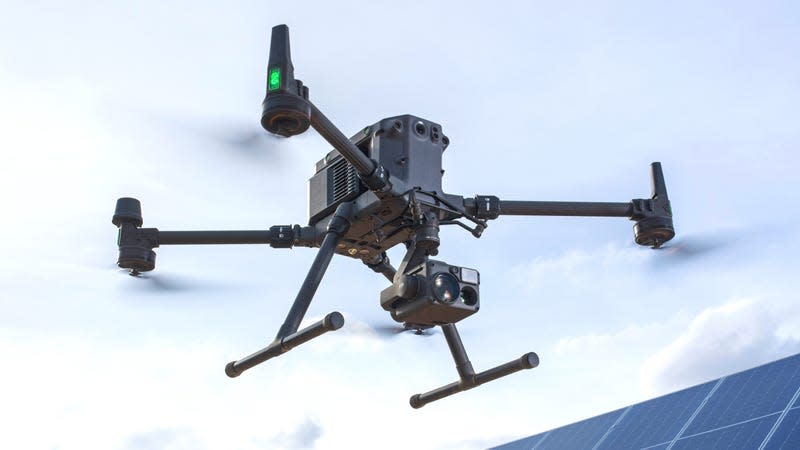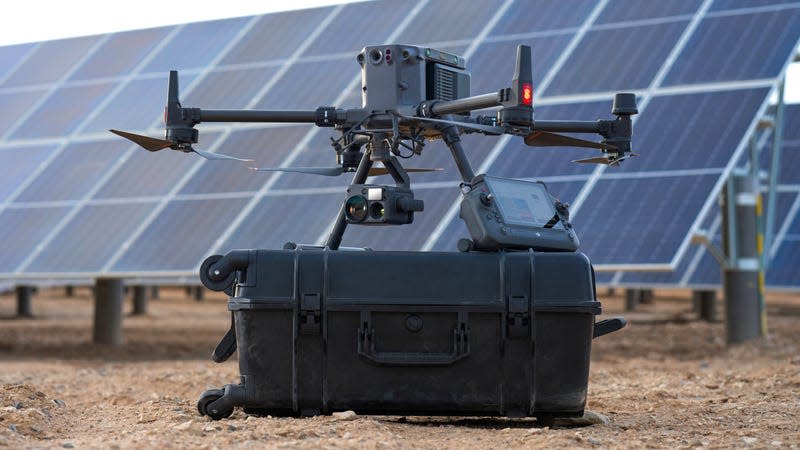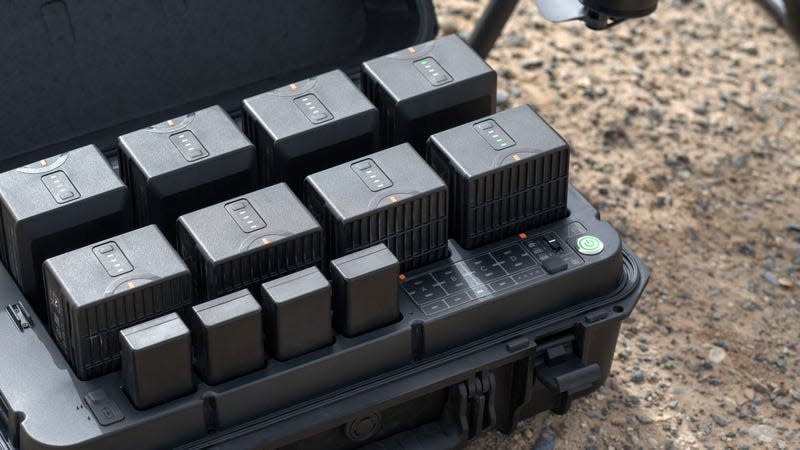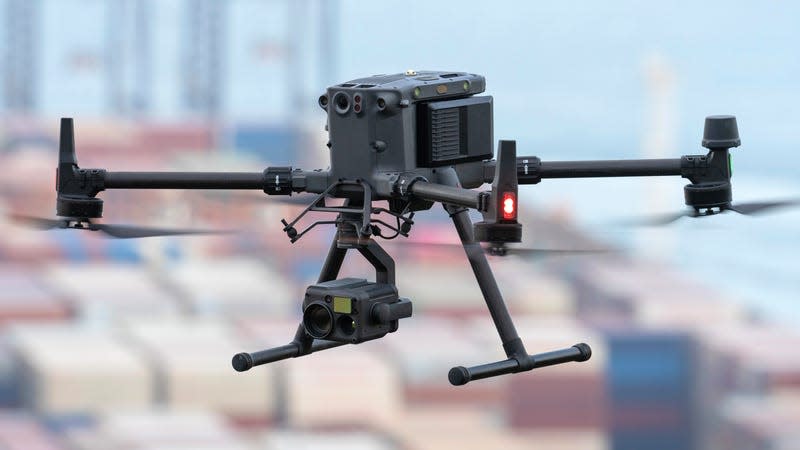DJI's Latest Drone Is a Flying Tank That Can Stay in the Air for 55 Minutes

As impressively capable as DJI’s consumer drones have become, they’re all designed for one specific task: capturing compelling footage using built-in camera gear that’s engineered to be light and small. If you’re instead looking to attach your own hardware for other uses, such as inspecting a towering wind turbine with a laser scanner or mapping a large area of land, you need to upgrade to DJI’s Matrice line, and the new 350 RTK boasts a payload capacity of almost six pounds and flight times reaching an hour.
The Matrice 350 RTK does come with built-in cameras, but they’re used for the drone’s “six-directional binocular vision system” that works alongside an infrared sensor system to ensure that obstacles posing a threat to the drone can be automatically detected and avoided. Optionally, the Matrice 350 RTK can be further upgraded with a circular scanning millimeter (CSM) radar pod mounted atop the drone that’s designed to detect more subtle obstacles like wires, power lines, and thin tree branches from a distance of up to 100 feet away, and ensure it doesn’t get close enough to make contact with its spinning propellers.
Read more

Robust autonomous obstacle avoidance is an important feature because the Matrice 350 RTK uses DJI’s O3 Enterprise Transmission system allowing it to be flown around 12.5 miles away from its operator. Even though the person at the controls will have an HD livestream from the drone on the included DJI RC Plus controller’s seven-inch screen, the craft is still potentially going to be flying well outside the line-of-sight range, so to some degree, it’s going to need to look after itself.
And because the drone is designed for more industrial uses like remote inspection and even search and rescue, waiting for pleasant weather or daylight isn’t always an option, so the Matrice 350 RTK includes an upgraded FPV camera with improved low-light performance, and a step-up to IP55 weather-resistance, allowing it to shrug off a rainstorm.

As impressive as 55 minutes of flight time for a drone this size is, the Matrice 350 RTK is designed for commercial purposes which means it needs to be in the air for most of the working day. To minimize downtime, its new TB65 battery can be charged in the DJI BS65 Intelligent Battery Station which comes integrated into a rolling, waterproof carrying case. To prolong life and charge cycles, batteries can be set to charge to just 50% if they’re not going to be used in a while, or charged to 90% with the last 10% being completed as needed.
The DJI Matrice 350 RTK can also carry two batteries onboard and allows hot swapping so that users can replace near-depleted batteries, one at a time, while the other keeps the drone’s electronics running so that it never disconnects from its controller or other wireless monitoring equipment, and is never forced to reboot before taking off again.

Unlike DJI’s drones for consumers and content creators which feature a single gimbal-stabilized camera module that can’t be removed or upgraded, the Matrice 350 RTK is compatible with several different swappable payload systems, including multi-lens cameras, modules with thermal cameras, and even a Lidar laser-scanning system for mapping applications. The drone can also be equipped with up to three of these payload systems simultaneously (assuming their combined weight doesn’t exceed six pounds) and DJI allows third parties to create their own payload systems through access to an SDK.
The DJI Matrice 350 RTK is available for purchase starting today, but the company hasn’t shared pricing details yet, which means there’s definitely going to be some sticker shock for the average consumer. But to this drone’s target market, the price tag is probably a bargain given the type of equipment it’s replacing, and the added safety of being able to send the drone into dangerous situations, instead of a person.
More from Gizmodo
Sign up for Gizmodo's Newsletter. For the latest news, Facebook, Twitter and Instagram.

